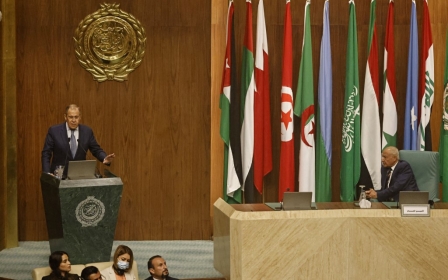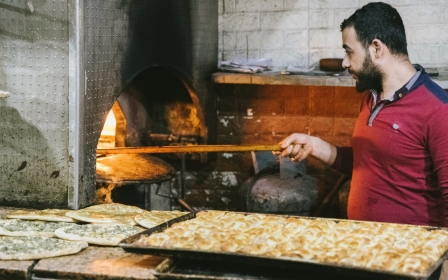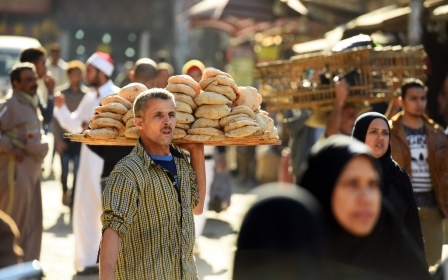Ukrainian claim 'looted' grain reached Lebanon met with acrimony and denial
Ukrainian claims that a Syrian-flagged ship in Lebanon's Tripoli port is carrying looted grain has caused acrimony and drawn a denial, with a Lebanese minister telling Middle East Eye the issue is being investigated.
Transportation Minister Ali Hamieh told MEE that Lebanon is studying the movements of the Laodicea, which arrived in Tripoli on Wednesday and Ukraine says is US sanctioned.
However, the minister, who is affiliated with Hezbollah, expressed dismay at the way Ukraine has approached the issue.
The Ukrainian embassy has said the Laodicea travelled from the Russian-controlled Crimean port of Feodosia carrying 5,000 tonnes of barley and 5,000 tonnes of flour. It suspects the grain was seized by invading Russian forces in the areas of Kherson, Zaporizhia and Mykolaiv.
On Friday the embassy said the grain was being sent to Lebanon, Syria, Egypt and Turkey, and the vessel was one of 78 ships illegally transporting Ukrainian grain that had been documented.
New MEE newsletter: Jerusalem Dispatch
Sign up to get the latest insights and analysis on Israel-Palestine, alongside Turkey Unpacked and other MEE newsletters
It claimed the Laodicea arrived in Feodosia on 9 July and was then loaded with grain, citing Ukrainian media reports with purported images of the ship docked in the Black Sea. Russia has previously denied it exports looted Ukrainian grain.
'The embassy is basing its conclusions on media coverage'
- Ali Hamieh, Lebanese transportation minister
Hamieh, however, questioned why the allegations were only being raised once the ship arrived in Lebanon. The Laodicea also appears to have docked at Izmir, Turkey, before it reached Feodosia.
He complained that diplomatic procedures had not been followed.
"The embassy is basing its conclusions on media coverage, and there is a certain diplomatic path that needs to be respected. As a relevant ministry, we should have been contacted through the legal and diplomatic processes," he told MEE.
The Lebanese foreign ministry tweeted that Lebanon had received warnings and protests from several western countries over the arrival of the ship.
Meanwhile, an official at Loyal Agro Co Ltd, a Turkey-based grains trading company, denied that the Laodicea's cargo was looted. The official, who declined to be named, told Reuters the source of the flour was Russian and the cargo was intended for private customers, not the Lebanese government.
The official said the grain had not been offloaded, as Lebanese authorities were investigating the Ukrainian claims. Documentation showing the cargo's Russian origin had been provided, the official said, though they would not share the paperwork with Reuters.
Ukrainian Ambassdor to Lebanon Ihor Ostash told MEE: "We are following up on all the legal measures in coordination with the general prosecutor in Ukraine to secure the cargo that belongs to Ukraine.
"We will insist on taking samples from the grains on the ship to document its origins and show that it comes from Ukrainian soil."
Russia's invasion of Ukraine, which began in February, has severely disrupted global food supplies. Several countries in the Middle East and North Africa imported the majority of their grain from Ukraine and Russia before the war, and the conflict has driven up prices and reduced availability.
In recent days, Lebanon, which is suffering a severe economic crisis, has seen long queues outside bakeries as bread becomes increasingly scarce.
The grain company official told Reuters that the Laodicea's cargo had been destined for Syria, but 5,000 tonnes of flour had been diverted to Lebanon in response to the bread shortages.
Middle East Eye delivers independent and unrivalled coverage and analysis of the Middle East, North Africa and beyond. To learn more about republishing this content and the associated fees, please fill out this form. More about MEE can be found here.




